8. 2001: A Space Odyssey (1968)
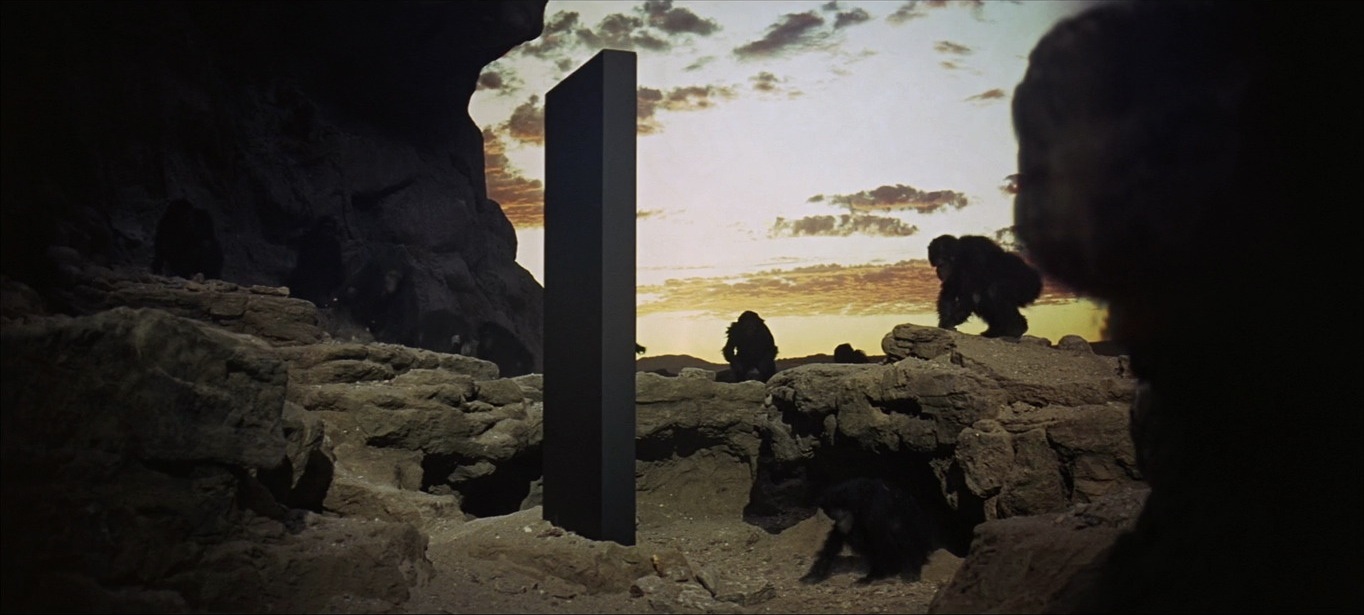
Stanley Kubrick’s heady sci-fi masterpiece has always been a polarising movie amongst audiences (and even movie buffs). Its initial run was a flop for the expensive and ambitious picture, with audiences completely confused about space foetuses and angry monkeys. Yet when the hippie scene took over in the 70s, it was re-released and slapped with the justifiable tagline “the ultimate trip” and rightfully reassessed as one of Kubrick’s most thought-provoking films. An epic examination of human nature and its inability to escape its primitive limitations, even in a far-flung future.
It’s a exhaustive experience (running close to three hours), yet its unique episodic structure, and of course the classic HAL plotline (stranded astronaut vs insane A.I.), reward patience in this unpredictable and iconic journey. It’s a rare beast in this film landscape – a big expensive arthouse film in the guise of a genre flick, one that wishes to provoke thoughts over thrills, and let’s not forget the incredible effects that still hold up to this day.
7. The Holy Mountain (1973)
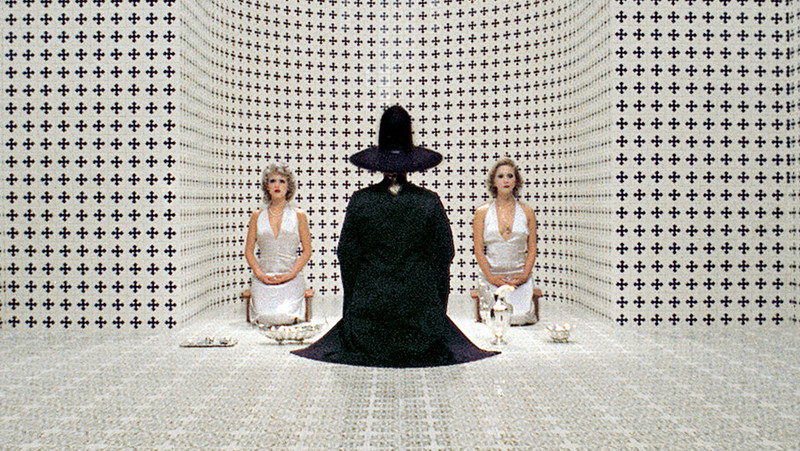
Having built a cult reputation for himself in the states with the lovingly Gonzo Spaghetti Western “El Topo” (1970), Alejandro Jodorowsky gained a bigger budget (thanks to fan John Lennon’s financing) with a bigger thematic chip on his shoulder.
For his next project, he satirized everything from religion, to militarism, to the consumerist mentality, all under the guise of one man’s (aka The Thief, a blatant Christ-like figure) spiritual journey that literally has him leap off a cross, then seek out the Alchemist (played by Jodorowsky himself), who along with his eight disciples (all from different planets) will attempt to overthrow ’The Holy Mountain.’
Even typing the synopsis is confusing, yet Jodorowsky’s movie is not one that benefits from text on a page – it’s a thing you dive in headlong and experience. It’s an enthralling yet arduous watch, filled with vivid imagery that will haunt or baffle most to the end of their days, and for the director’s own standards, that’s really saying something.
6. The Cabinet of Dr Caligari (1920)
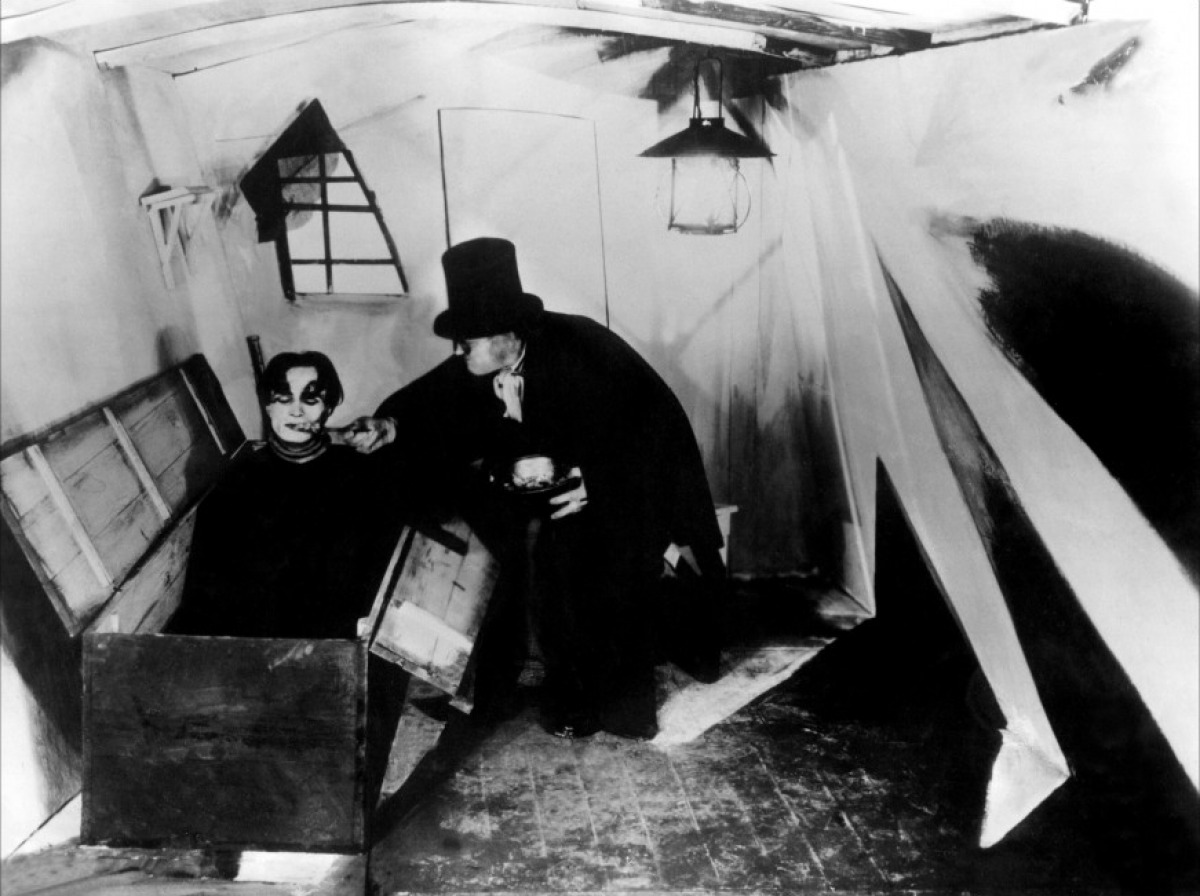
The originator of all ‘mind fuck’ movies, this movie is a seminal, lushly directed piece of work vastly ahead of its time. The film is told in flashback by a fugitive on the run as he retraces the doom-laden murder mystery in which he becomes entwined. Director Robert Wiene creates the definitive German Expressionist movie, with production hampered by their lighting budget.
The film instead features prominent painted backgrounds that helped create a distorted and sinister city full of twisted structures and ominous black-and-white skies – the legacy it created was carried by prominent names such as Tim Burton and David Lynch, are undeniable.
Add to that a silent movie that manages to stand the test of time, as the central plot strings the audience into its unpredictable fantasy world with an involving ‘whodunit,’ and ends with the first (and still one of the best) twist endings in cinema.
5. Persona (1966)
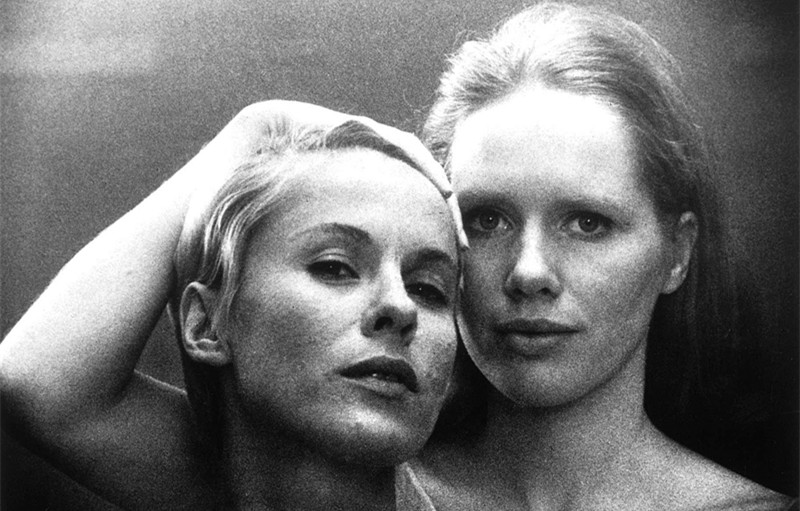
Swedish director Ingmar Bergman was a master at melding disorientating dreamlike narratives with powerful psychological drama. There’s none more haunting and memorable than his seminal “Persona” – coupled with his two long-term muses, Liv Ullmann and Bibi Andersson, in a ‘bottle scenario’ as the two women are holed up in a small cabin as vulnerable patient and outspoken nurse. Slowly tables are turned though as their personalities slowly overlap and meld in this unsettling character piece.
Starting with a shockingly abstract opening, the main drama soon takes place, sparse as a premise but rich in atmosphere and character. Anderson bares all as the vocal nurse who becomes drawn to her patient, and Ullmann is haunting and charismatic as her completely mute counterpart, saying a thousand words in just a glare.
The stark black-and-white and dynamic compositions (that classic split portrait image is cinematic gold) add to the uncomfortable undertone in this masterpiece from Bergman, which will frazzle the brain as well as the emotions.
4. Synecdoche, New York (2008)
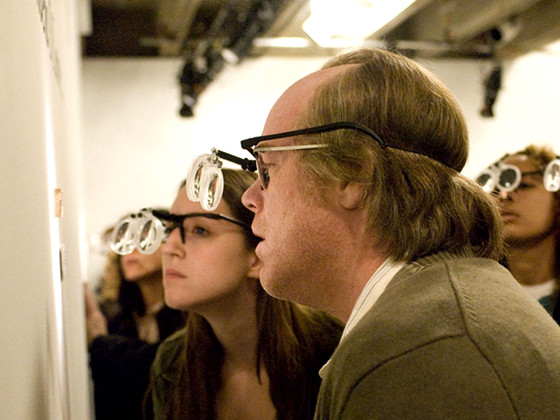
Screenwriter Charlie Kaufman has cut himself a pedigree as one the most distinct screenwriters out there – his stories are filled with an offbeat poeticism and bitter humour, with every movie he’s written baring his undeniable brand, even more so then the director. Yet his directorial debut truly takes the cake when it come to an unfiltered trek through his fascinating, if at times disturbing, brain.
Starting in what feels like a thinly veiled biography on Kaufman himself (his alter ego is played ingeniously by Philip Seymour Hoffman), it takes about 10 whole minutes for us to realise that’s not the case at all – it’s truly an exploration of the protagonist’s (and possibly Kaufman’s) pure psyche, all phobias and desires placed on a platter for examination in a rich and honest story shrouded by a purposefully dreamlike structure.
Filled to the brim with incredible performers (i.e. Hoffman, Catherine Keener, Tom Noonan) playing intricate parts of the puzzle, it is, as usual, Kaufman who walks away as the shining star in this exhaustive yet rewarding story.
3. Brazil (1985)

Terry Gilliam is a champion of outlandish visceral filmmaking and mind-bending escapades, yet this dystopian masterpiece really has to take the position of the prime example when it comes to a slot on this list.
It takes a healthy dose of George Orwell’s “1984” coupled with Gillian’s (and frequent co-writer Charles McKeown’s) acidic wit as his satire for Thatcher era bureaucracy escalates to deadly heights. Luckily, their protagonist, a timid banker (Jonathan Pryce), is a beacon of hope amongst the darkness and bitter humour; he daydreams of flying amongst the grey dystopia and rescuing his damsel in distress (Kim Greist), yet like most dark sci-fi, he finds himself wound up in a rebellious plot to overthrow the iron-fisted government.
Gillian’s imaginative visual repertoire is on full display, but unlike some of his missteps, he perfectly accompanies a loaded agenda with plenty to comment about, yet regardless of the movie’s envelope pushing in style and commentary, it is at least grounded in its own world, whereas in the third act things get escalating strange with a payoff that is both somehow devastatingly grim yet with a tinge of ignorant hope in this unforgettable experience.
2. The Prestige (2006)
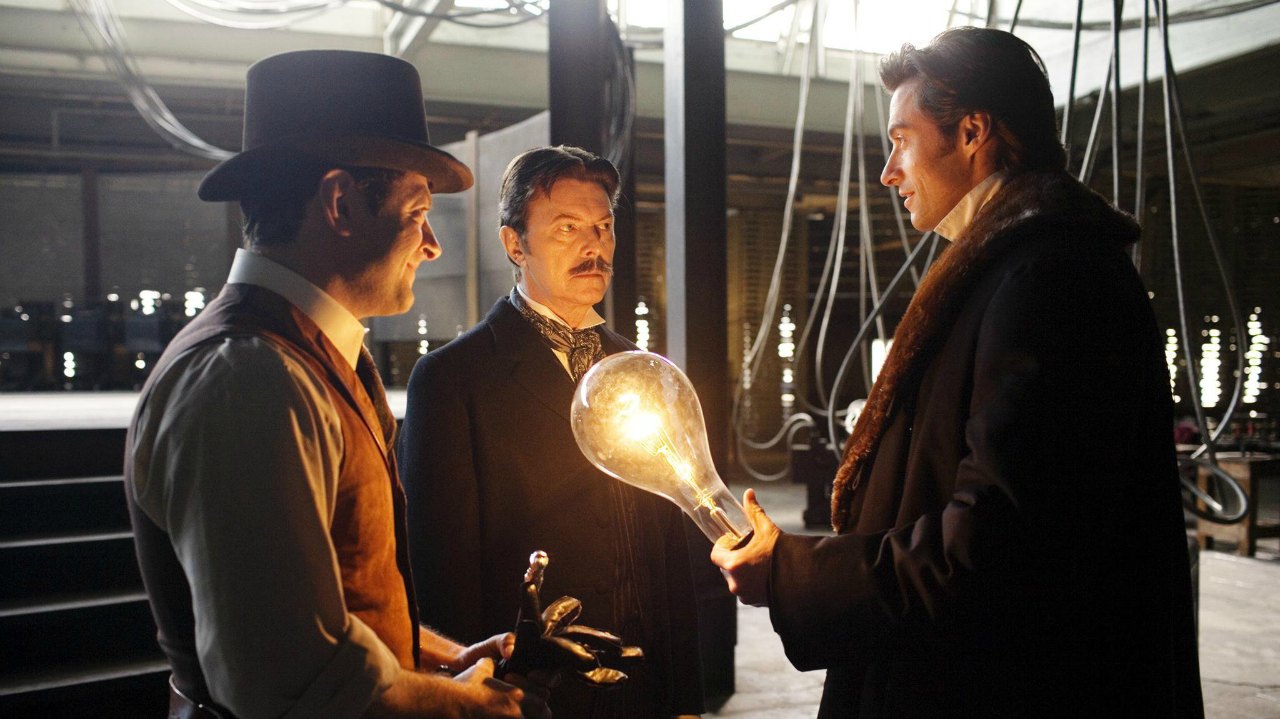
No doubt, most of director Christopher Nolan’s backlog could fill up an article centred around this subject. He’s a mainstream director who’s always championed challenging his audience’s brain along with glossy thrills, but there’s no better culprit to see his clever exploits than with this period-set drama following the rivalry between magicians Christian Bale and Hugh Jackman.
An engrossing obtuse puzzle box built in the guise of a movie, the premise feels simple enough as the conflict reaches obsessive, then insane and lethal heights. But ultimately there’s is something much deeper going on – Michael Caine’s narration is constantly egging on about the art of executing a trick, distracting us from the fact that Nolan is pulling one over on us the whole time.
Certainly a handful a revelations appear at the end, yet Caine hints there has been something more – could it be that from the three jagged timelines (two of which come from questionable sources) the information from them could false? This head-scratcher is Nolan at his low-key ‘mind fuck’ best, in a film that only gets vastly better every watch.
1. Jacob’s Ladder (1990)
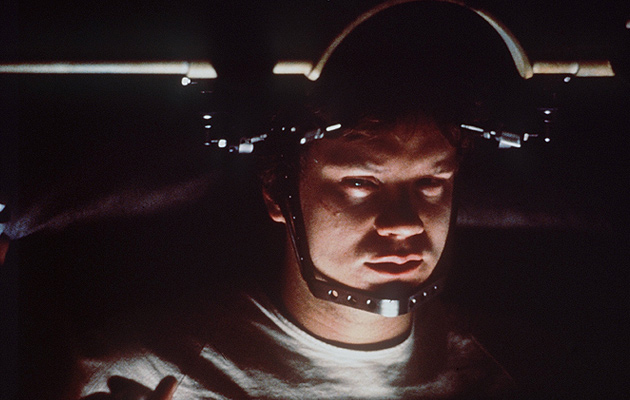
“Jacob’s Ladder” is a film that literally grips from its shocking opening – a seemingly dull day for a platoon during the Vietnam conflict quickly turns into a fierce battle with soldier Jacob (Tim Robbins) getting violently wounded. Then suddenly we’re whisked away to his life at home in grimy 80’s New York, a place where the already off-kilter city dwellers begin start showing darker qualities, as the war veteran attempts to deal with shell-shock after the effects of his war tour. Is his fragile psychology state the sole reason for his ‘visions,’ or is something much deeper at play?
Therein lies the hook of this criminally underrated movie – one where we’re constantly questioning our main protagonist’s grip on reality as things unravel – are his assailants past demons coming for penance? The side effects of a government drug-laced war experiment? Or his mind imploding on itself? All of these questions grip as things escalate into a waking nightmare and unravels into a gut punch of a twist ending.
Director Adrian Lyne manages to execute several things here – a chilling horror, a gripping psychological thriller, and emotional ’coming home’ drama – yet it never gets lost amidst its whirlwind story due to an incredibly disciplined direction with great location work mixed with frightful effects, all anchored by an honest and involving lead performance from Robbins, in a film that will move you just as much as it will scare and baffle you.